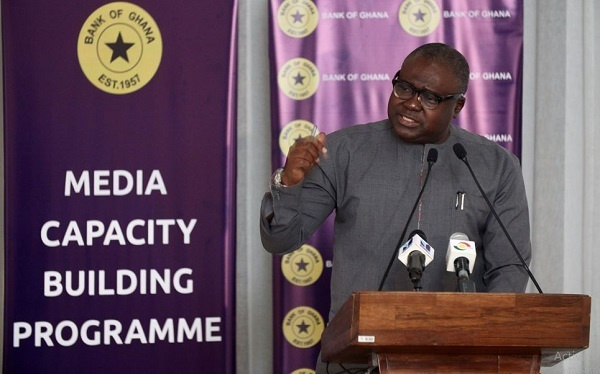The Bank of Ghana’s decision to reduce government debt by 50 per cent has been touted as a crucial move that averted economic collapse and impressed external partners.
Dr. Philip Abradu-Otoo, Director of Research at BoG, highlighted that the bank’s action sends a positive signal to international observers, who were closely monitoring the situation before committing to their own debt treatments.
“With BoG being the absorber, the external partners are also watching. Remember they also need to go through some debt treatment but before that they needed to see what will happen to the Bank of Ghana and now that they’ve seen that, it will send a signal to them”, the GNA quotes him as saying.
“With this, I’m sure it will make the process go faster because the biggest policy institution has taken a haircut”, Dr. Abradu-Otoo added.
The absorption of losses by BoG is likely to expedite the debt resolution process.
The BoG suffered a significant loss of GHS55.12 billion in 2022, primarily due to the Domestic Exchange Programme (DDEP), which involved a 50 percent reduction in non-marketable government instruments held by the bank. Comparable terms were applied to the exchange of marketable instruments held by other financial institutions, resulting in an impairment of GHS48.40 billion.
Additional losses stemmed from revaluations of foreign assets due to exchange rate fluctuations. Despite these challenges, the Central Bank expressed its commitment to maintaining policy solvency, managing inflation, and ensuring financial stability.
Measures, including government support for recapitalisation, are anticipated to restore equity by the end of 2027.
Source: classfmonline.com

